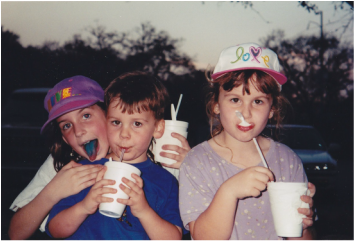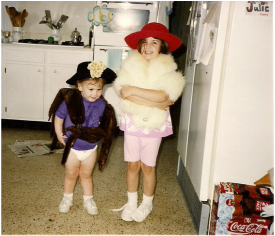Demonstration vs. Explanation
A while back, I engaged in a detailed daydream about leading a creative writing seminar. I participated actively in the daydream by listing out five sets of “paradoxes” that would be “true” in any creative-writing-based meetings I might hold. I’d present the paradoxes and then explain them in detail, as a way of introducing the class.
The fourth paradox went like this:
The fourth paradox went like this:
Even a person who cannot write can identify good and bad writing.
You may be wary of critics who do not write or do not finish writing.
This paradox proved valuable within my daydream, because it’s simultaneously important to remember that all criticisms have value and that not all criticisms are realistic or need be obeyed.
Having acknowledged that I hold this belief, let me criticize one particular criticism I’ve seen—most recently, of the character Sarkan in Uprooted. (No spoilers!)
“This character is a jerk only for the sake of being a jerk, just for the plain old reason that he/she wants to be a jerk.”
Having acknowledged that I hold this belief, let me criticize one particular criticism I’ve seen—most recently, of the character Sarkan in Uprooted. (No spoilers!)
“This character is a jerk only for the sake of being a jerk, just for the plain old reason that he/she wants to be a jerk.”
In this example, “a jerk” may be replaced with any character trait you like. Reviewers and critics often say such things in response to what they view as “bad” writing.
Well, I have a question: what makes you the way you are?
Can you isolate a reason for the scope of your personality? Can you identify the determining event, the set of past or current circumstances, the catalyst that drives you to do what you do, to act as you act, to think what you think, from moment to moment?
I certainly couldn’t. I have enough trouble composing my Twitter bio.
Introspective as I am, capable as I am of pinpointing formative experiences in my past, there would never be a point in my life where telling one story or typing out one biography would explain all of me.
Well, I have a question: what makes you the way you are?
Can you isolate a reason for the scope of your personality? Can you identify the determining event, the set of past or current circumstances, the catalyst that drives you to do what you do, to act as you act, to think what you think, from moment to moment?
I certainly couldn’t. I have enough trouble composing my Twitter bio.
Introspective as I am, capable as I am of pinpointing formative experiences in my past, there would never be a point in my life where telling one story or typing out one biography would explain all of me.
Read a stranger's memoir, then tell me if you actually know that person any better than you did before reading the memoir. Tell me if you can predict how the real person would respond to a homeless man on the streets on any given day.
I bet you’d come to know more details about that stranger’s past than about some friends’—but you’d be able to anticipate far more of your friends’ actions, wouldn’t you?
I’m me. You’re you. And while we’ve certainly been driven to this point in our existence by the experiences in our past, I doubt any story about us could ever accurately explain the complex sum of our character.
So, why do we expect that of fiction? Of our villains and grumps, in particular?
Let me be clear—we need backstory. We need to be able to sense internal consistency within the makeup of a character. As writers, we need to create whole, complex people, as often and as believably as we can. We need to make readers believe that a set of actions, behaviors, and decisions could coexist and follow one from the next.
But characters can have an innate, intrinsic "self"—that "I am what I am because I am what I am" spiral—just like real people. It's how parents can spot differences in their kids' personalities, even at a young age—even twins! And that "self" grows and shifts and changes as we live!
We can anticipate our friends more than people we've researched and studied, because we’ve witnessed our friends actually going about their lives and responding to the world around them. It works even without a backstory, without complete context for their behavior.
We meet and understand characters through the actions we see them taking.
Either Julie gave the homeless man a dollar, or Julie walked past the homeless man with her eyes averted, or Julie mocked the homeless man as she passed. Through that action, whichever one, we learn something about Julie. There’s no need to go back and explain why Julie did the thing she did. It’s enough to know she did it. Explaining the action might require an exhaustive recounting of the entire course of her life. And maybe that’s not the story that matters.
Maybe the story that matters is how the homeless man reacts.
I bet you’d come to know more details about that stranger’s past than about some friends’—but you’d be able to anticipate far more of your friends’ actions, wouldn’t you?
I’m me. You’re you. And while we’ve certainly been driven to this point in our existence by the experiences in our past, I doubt any story about us could ever accurately explain the complex sum of our character.
So, why do we expect that of fiction? Of our villains and grumps, in particular?
Let me be clear—we need backstory. We need to be able to sense internal consistency within the makeup of a character. As writers, we need to create whole, complex people, as often and as believably as we can. We need to make readers believe that a set of actions, behaviors, and decisions could coexist and follow one from the next.
But characters can have an innate, intrinsic "self"—that "I am what I am because I am what I am" spiral—just like real people. It's how parents can spot differences in their kids' personalities, even at a young age—even twins! And that "self" grows and shifts and changes as we live!
We can anticipate our friends more than people we've researched and studied, because we’ve witnessed our friends actually going about their lives and responding to the world around them. It works even without a backstory, without complete context for their behavior.
We meet and understand characters through the actions we see them taking.
Either Julie gave the homeless man a dollar, or Julie walked past the homeless man with her eyes averted, or Julie mocked the homeless man as she passed. Through that action, whichever one, we learn something about Julie. There’s no need to go back and explain why Julie did the thing she did. It’s enough to know she did it. Explaining the action might require an exhaustive recounting of the entire course of her life. And maybe that’s not the story that matters.
Maybe the story that matters is how the homeless man reacts.




 RSS Feed
RSS Feed


